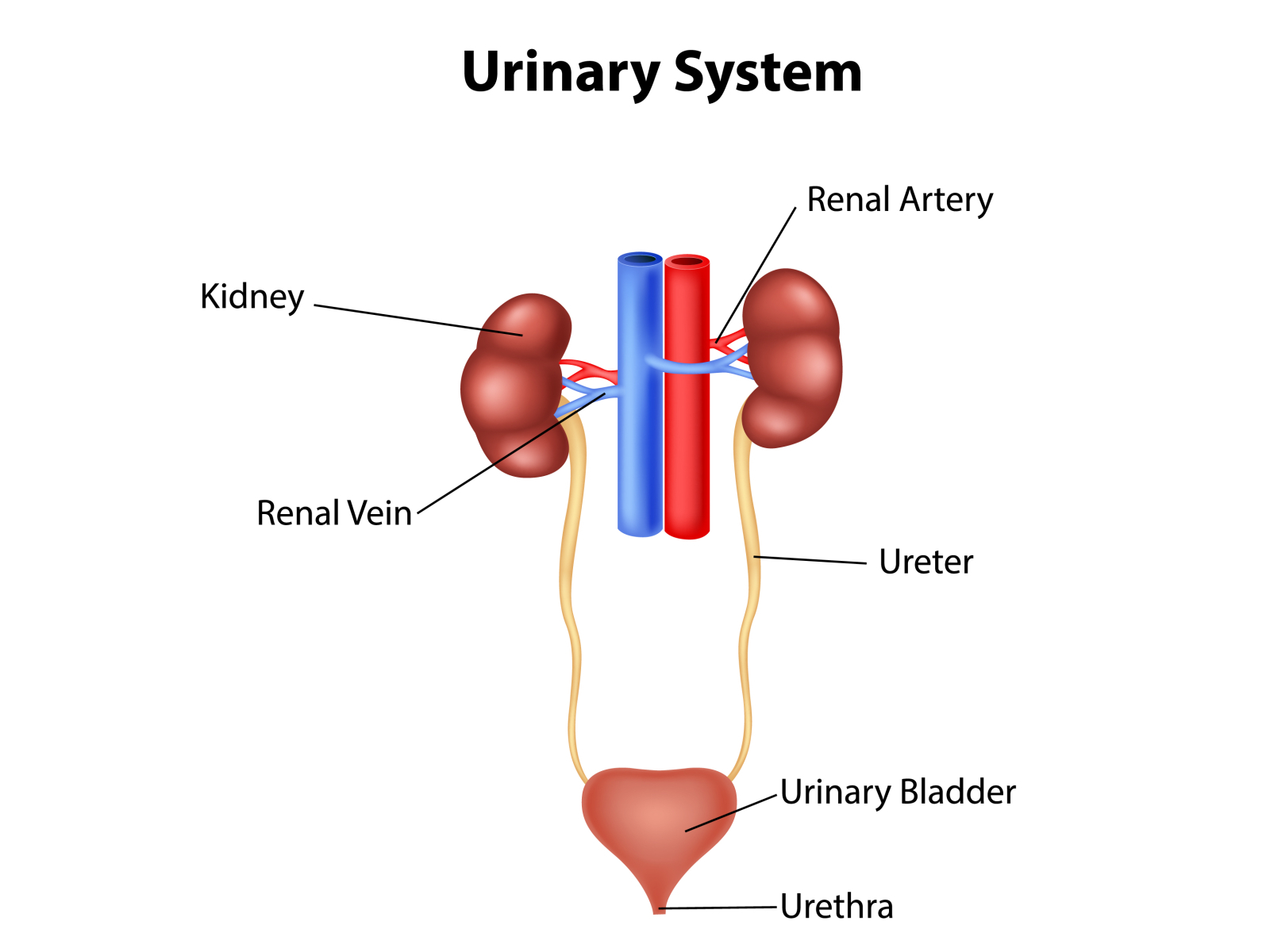How Do Kidneys Function?
Most people are born with two functioning kidneys that are located above the waist in the back and are partially protected by the ribs. The kidneys are part of the urinary system that contains the kidneys, ureters, bladder, and urethra. The ureter leads from each kidney to the bladder (the storage sac for urine). When the bladder is full, nerves in the bladder wall will signal to the brain to stimulate urination.
The kidneys have four main functions. The first function is to filter waste and remove excess fluid. In one day about 200 quarts of blood pass through the kidneys and from that blood, two quarts of excess fluid and waste products are then removed as urine. In urine, the major waste products are blood urea nitrogen (BUN) and creatinine. With renal failure, the blood will still pass through the kidneys but not as much waste will be removed.
The second function of the kidney is to regulate the body's chemicals and electrolytes. Not only do they remove waste, but they are major regulators of the body's fluid, chemical, and electrolyte composition. Larger particles in the blood such as blood cells, platelets, and protein may remain while water, sugar, creatinine, urea, salt, and other small molecules are usually filtered out and passed from the body as urine. To simplify the kidneys, they help the body maintain homeostasis. Some of the substances filtered in the kidneys are able to be reabsorbed by a complex process so that essential compounds are not lost from the body.
The third function of the kidney is the ability to regulate blood pressure. The kidneys aids in the production of renin, the hormones that regulate blood pressure. Kidney disease/impairments prevent the kidney from producing this vital hormone which will lead to a loss of the body's ability to regulate blood pressure. Aside from the kidney's ability to produce renin, the amount of water and sodium retained by the body also plays a role in the regulation of blood pressure. Without a proper functioning kidney, the body becomes unable to remove the excess water and sodium, leading to increased blood pressure.
The fourth and final function of the kidney is to stimulate the production of red blood cells. Kidneys produce erythropoietin, a hormone that stimulates the bone marrow to produce new red blood cells. Patients with kidney problems may also be anemic or have a low blood count as their kidneys are unable to produce erythropoietin. This can lead patients to require blood transfusions.
It is obvious that the kidneys are vital to being able to lead a happy, healthy life. The kidneys control more than what one would think of at first. They are extremely important. If the kidneys stop functioning properly, it can lead to multiple organ failure as it controls so much.
https://www.kidney.org/news/newsroom/
fsindex#:~:text=According%20to%20the%20latest%20U.S.%20Renal%20Data%20System,more
%20than%20193%2C000%20have%20a%20functioning%20kidney%20transplant.


Comments
Post a Comment